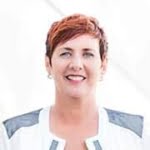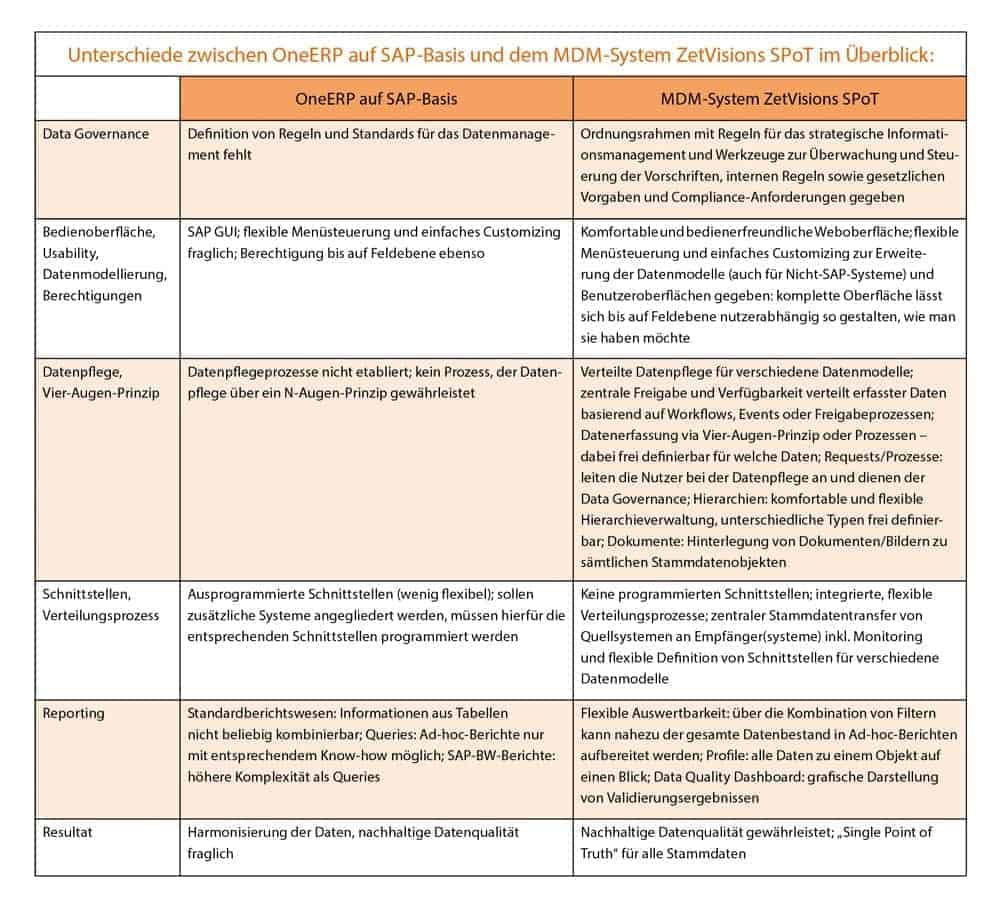MDM versus OneERP


Big Data has given the topic of data quality another powerful boost. This is confirmed by the "IT Trends 2015" study by Capgemini. According to this study, the importance of data quality and master data management (MDM) has increased further, in line with the requirement to improve the evaluation and use of information.
The problem is that master data is often stored in different applications and databases, and customer, article, material, supplier, financial and employee data is created, used and maintained by different departments. This makes standardization difficult and time-consuming. No wonder, then, that data consolidation and cleansing are ongoing issues.
Poor data quality in ERP
This also applies to enterprise resource planning (ERP) systems, which support the timely and demand-driven planning and control of all business processes and resources relevant to a company.
They can only effectively fulfill this task if the data quality is right. But is it? A study conducted by Omikron Data Quality two years ago showed that the target and actual status of data quality in ERP are far apart.
According to the study, the actual status of data quality meets the requirements for business applications in only one-third of the more than 200 ERP users surveyed. Twenty-nine percent noted certain deviations, and 39 percent of those surveyed even reported major discrepancies.
OneERP does not replace master data management
Against this background, there is a harmonization and consolidation trend in companies with the aim of reducing complexity, sources of error and costs as well as improving data quality through fewer systems.
This goal is believed to be achievable with OneERP projects. OneERP refers to the plan to replace the heterogeneous ERP landscape with a single ERP system. This may also help in the short term - in any case, for data quality, one ERP system is better than many ERP systems - but in the medium to long term, the validation processes and data quality checks are missing, i.e., the very aspects that make up a master data management solution and are necessary to ensure data quality in the long term.
However, some shy away from the effort required for such a solution. In the case of MDM, it is primarily the steps for process optimization that are of importance, since business processes are automatically evaluated and adapted in the case of a master data initiative.
This process analysis and consulting is definitely resource-intensive, because only when the processes are clear and everyone knows who has data sovereignty, who maintains which data, and who holds which data, only then does the MDM software come into focus. Ultimately, it only maps what was previously defined on the process side.
This illustrates a key difference between a OneERP project and a master data initiative: the latter analyzes existing processes, adapts them to the required target state, and defines processes, rules, and standards for data management; the former consolidates multiple ERP systems into a single one, but generally leaves the processes as they are and does not establish binding data governance.
Anyone who deals with master data management must realize: OneERP has many advantages, but sustainable data quality cannot be achieved by harmonizing various ERP systems alone. This requires an MDM solution that takes into account the data governance aspect in particular.
Alternatives to the MDM solution
If companies have already implemented a OneERP project, there are two different alternatives for the exemplary interaction between the ZetVisions SPoT master data management system and SAP-based OneERP:
- Alternative 1: Data is maintained in the MDM system and distributed from there to the ERP and directly to other recipient systems.Advantage: Distribution processes and data transfer monitoring run via the MDM system. You can see whether the data has actually arrived in the target systems or whether there were problems.
- Alternative 2: Data is also maintained in the MDM system, then transferred to the ERP and distributed from there to the existing interfaces.
If OneERP has not yet been implemented and a heterogeneous ERP landscape continues to exist, the question arises as to whether an MDM solution should not be established immediately, because this would allow all existing ERP systems to be controlled with regard to uniform master data.







